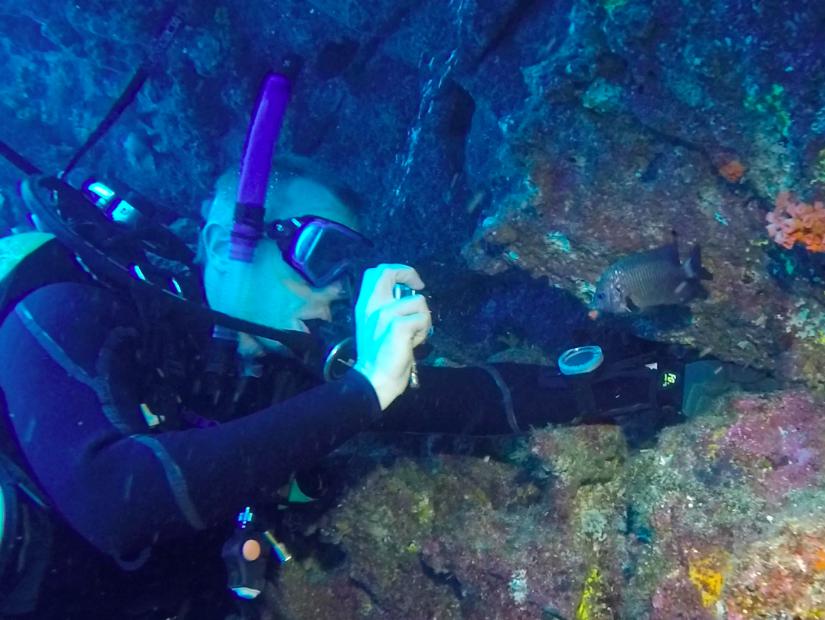Social media video featuring the project.
Marine ecology in easter island
16 Jun 2014 Charles Darwin Research Station, Ecuador, Central and Latin America Marine | Fishes
Anthropogenic Threats to Mollusk Populations and their Ecological Role on the Continental Coast of Ecuador
Assessment and Mitigation of the Effects of the 2015-16 El Niño Event on Reef Fishes of the Galapagos Islands
Our project aims to describe how reef fish communities of the Galapagos Islands have changed with increasing human impacts from fishing, tourism, and climate change. Together with experiments to test how ecological interactions are affected by these changes, we will provide essential information to maximize the effectiveness of protections afforded by the Galapagos Marine Reserve.

Galapagos rocky reefs comprise a unique and highly productive marine ecosystem, but also provide the basis for local tourism and fisheries. Reef fishes of the Galapagos Islands act as key drivers of ecosystem function by consuming other organisms such as algae and barnacles and by providing a food source for higher trophic levels such as sharks and sea lions. However, little is known regarding the contributions of individual species and functional groups (such as parrotfishes) to the stability and resilience of marine ecosystems in the Galapagos to anthropogenic stressors. We are using historical data from censuses maintained by the Galapagos National Park and the Charles Darwin Research Station along with novel survey methods to determine how fish communities vary in time and space in relation to factors such as fishing and climate change. This is especially important now, with a high probability of the arrival of an El Niño event in the coming 6 months. These events produce high wave events and increase water temperature by several degrees centigrade, lowering productivity and changing ocean circulation patterns.
Together with these surveys, we will implement underwater experiments using scuba to measure the ecological impacts of species losses. For instance, the bumphead parrotfish (Scarus perrico) may play an important role in maintaining benthic algal diversity and productivity by scraping away crusts of coralline algae down to the rock substrate, thus providing new space for colonization of other benthic organisms. By combining thorough field observations with manipulative experiments, we aim to gain insight into the key players within the reef fish community that support ecological stability in these times of rapid anthropogenic change. This type of information is essential for the Galapagos National Park to determine priority species and habitats for protection under the new Galapagos Marine Reserve system.
Social media video featuring the project.
Marine ecology in easter island